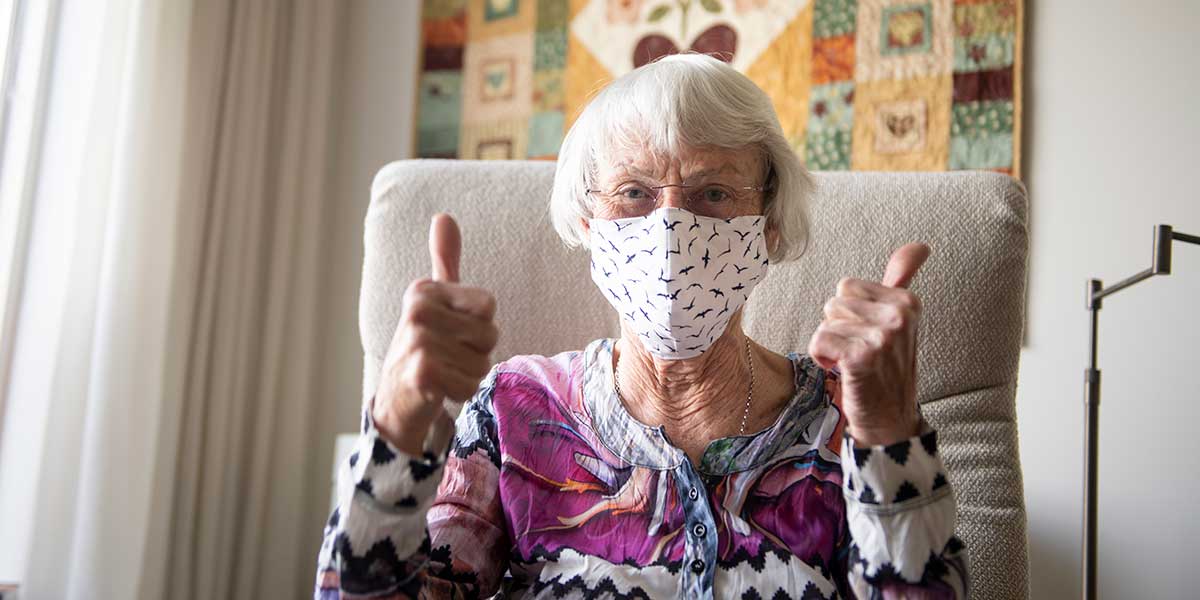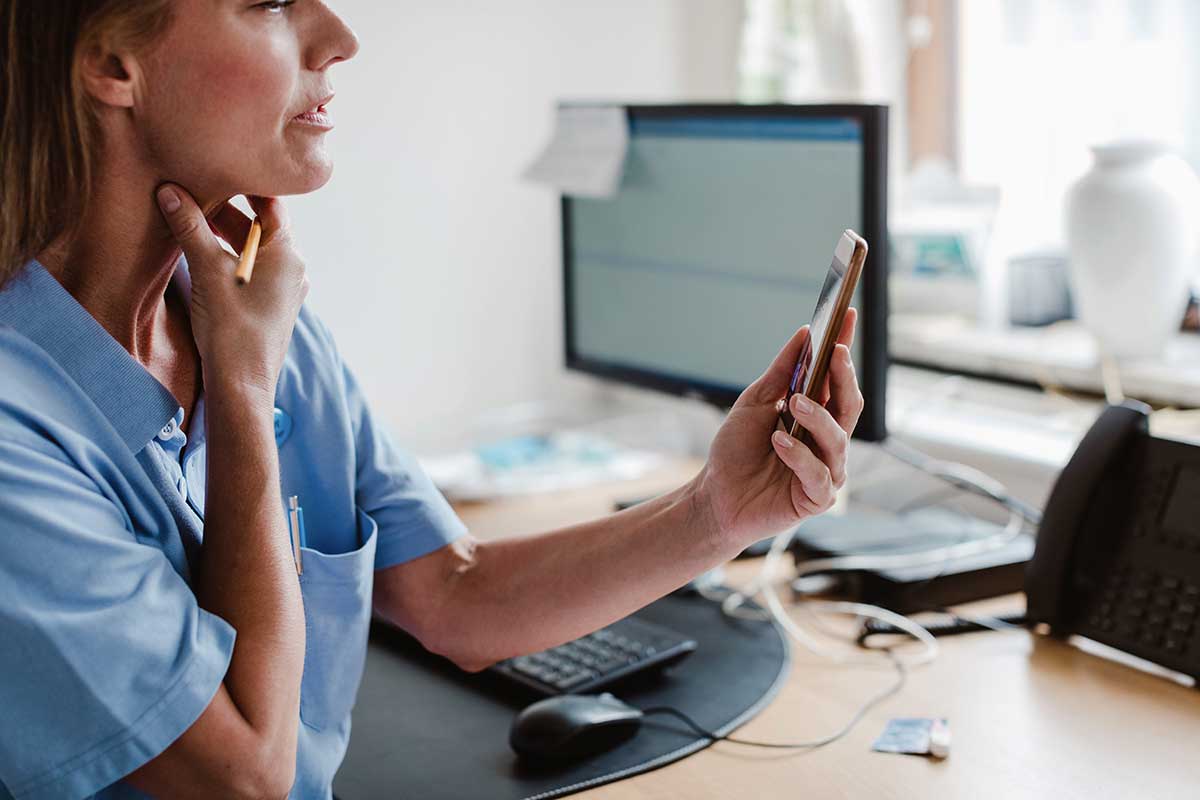What You Need to Know About the Coronavirus or COVID-19

Last reviewed and updated: Jan. 12, 2021
During the coronavirus pandemic, we're updating this resource center regularly to keep you informed. Stay connected:
- Check back here for updates.
- Follow the news and consult the Centers for Disease Control and Prevention's Coronavirus website for alerts.
- Contact your MDVIP-affiliated physician — your partner in health and prevention — if you're not feeling well.
Wondering about the new coronavirus vaccines? Two vaccines have been approved by the Food and Drug Administration. Here's how your local state is distributing them and here's how they work.
You may also have heard about the vaccines' side effects in the news or on social media. Are they worse than other vaccines? Our Chief Medical Office Dr. Andrea Klemes, who participated in one of the vaccine trials, explains these side effects.
You may also be wondering if you already had COVID, if you should get the vaccine. We posed this question and others to one of the world's top vaccine scientists. Here's what he had to say.
To expand any of the sections on this page, just click on the "+" button.
 Wear a Mask
Wear a Mask
Wear a Mask
When you are out in public and unable to practice social distancing – or inside a facility with others — the U.S. Centers for Disease Control and Prevention (CDC) recommends wearing a mask to protect yourself. Many states have stringent statewide requirements for wearing a face mask in public. Others do not but wearing a mask along with social distancing are the best tools to preventing a COVID-19 infection if you go out.
Most people are wearing either a cloth, surgical or N95 mask. Many people of opted for cloth masks, possibly because they’re very accessible. But they aren’t recommended for children younger than two years old or for adults who may not be able to remove it on their own in an emergency.
If you are wearing cloth masks, the CDC advises that they should fit snugly but comfortably against the side of your face. The mask should cover your nose and mouth and be secured with ties or ear loops. They should be constructed of several layers of fabric that allow you to breath easily and be durable enough to be washed and machine dried without getting damaged or changing shape.
Mask durability is important, as a dirty mask is less effective, according to a study published in Physics of Fluids. Masks slow airflow, making people more vulnerable to breathing in particles -- and a dirty face mask can’t effectively filter out the tiniest of droplets. This means a dirty mask may be more dangerous than no mask at all.
What are the differences between a cloth mask, surgical mask or N95 mask? >>
Practice Social Distancing
Staying away from others, or social distancing, is even more effective than masks. You can’t become infected if you don’t come into contact with this coronavirus. That means avoiding non-essential trips out, cooking at home and avoiding gatherings. When you do go out, it means staying away from others – at least six feet.
Since COVID-19 is a new virus, there aren’t many studies supporting the use of social distancing to control COVID-19. However, social distancing has been practiced with success in previous pandemics, and observational and simulation studies have found evidence to support social distancing measures during flu outbreaks, according to a policy review published in the CDC’s journal Emerging Infectious Diseases.
When can we ease up on social distancing? >>
Follow the CDC’s Travel Guidance
Currently, the CDC has placed the U.S. at a warning level 4, the highest advisory level. It means you should not travel out of the country. And if you are traveling within the U.S., understand the conditions of the city or state where you’re going. Some areas of the U.S. have more widespread infections, and others have requirements to quarantine upon arrival. If you’re planning on traveling domestically, check out the CDC’s Travel Planner.
You should also be careful when you return. You and your travel companions (including children) may feel well and not have any symptoms, but you can still spread COVID-19 to family, friends and community after travel.
Don’t travel if you are sick or test positive for COVID-19. Don’t travel with someone who is sick.
Manage Chronic Conditions
About 80 percent of people infected with COVID019 had mild symptoms and recovered with little medical intervention. But 15 percent developed serious symptoms and another 5 percent had life-threatening symptoms, which experts attributed to having an underlying condition. This is why it’s so important to manage chronic conditions, particularly cardiovascular disease, diabetes and chronic lung conditions.
Learn more about how these illnesses can exacerbate a COVID-19 case >>
Stay Up to Date with Government Recommendations: Precautions and Vaccinations
The U.S. Centers for Disease Control and Prevention (CDC) provides the latest recommendations to help you get through the pandemic as safely as possible.
As of now, the CDC precautions include wearing masks in public, maintaining at least six feet distance from other people while in public and wearing gloves when caring for or cleaning someone who is sick. As for hygiene, wash your hands with soap for at least 20 seconds before eating or after touching dirty items or using the restroom. If soap is not available, use an alcohol-based hand rub with an alcohol concentration between 60 and 95 percent alcohol.
It’s also important you keep up with CDC-recommended vaccines, particularly flu (influenza), pneumonia (pneumovax) and shingles (Shingrix) vaccines. Why? Without these vaccinations, you have a higher risk of contracting these viruses. And if you do contract one of the viruses along with COVID-19, your risk serious, if not life-threatening complications.
 Even though many doctors’ offices are open, you may not be thrilled with visiting one right now. You may feel as though going to the doctor puts you at risk. The truth is: You still need your doctor. Forgoing medical care or preventive services can raise your risk of serious illness.
Even though many doctors’ offices are open, you may not be thrilled with visiting one right now. You may feel as though going to the doctor puts you at risk. The truth is: You still need your doctor. Forgoing medical care or preventive services can raise your risk of serious illness.
When should I contact my doctor?
If you’re sick or have a minor injury, call your PCP. Self-care may not do the trick. Listen to your doctor’s guidance including coming into the office. Doctors usually rely on cultures, blood work and a physical exam to prescribe the correct medication.
And if you’re managing chronic conditions, it’s very important stay in touch with your doctor. Patients living with chronic conditions like heart disease and type 2 diabetes who skip doctor visits are missing out on getting tests that tell them how their condition is being managed. A report out in late April showed that diagnostic tests like lipid panels and blood sugar screenings were down by as much as 68 percent nationwide.
There were 87,000 more deaths during March and April this year compared to previous years and only two-thirds of these deaths could be attributed to COVID-19, according to a study published in JAMA. These additional deaths were attributed to heart attacks, strokes and diabetes.
“The shutdown frightened many people. They didn’t seek help from their primary care physician, and they stayed out of hospital emergency departments,” says Bernard Kaminetsky, MD, medical director, MDVIP. “If you have a chronic condition, you must continue to communicate with your doctor regardless of what’s going on in the world.”
What about my wellness appointments?
You don’t want to skip these appointments either. Why? Wellness appointments cue your doctor in to brewing health problems that you may not notice such as high blood pressure, high cholesterol and diabetes.
They also allow your doctor to measure mental health issues such as stress, anxiety and depression – three issues that can wreak havoc on your health. In fact, between 75 and 90 percent of visits to primary care doctors are for stress-related issues. Stress is a common cause of insomnia, forgetfulness, obesity, high blood pressure and excessive smoking and drinking. It also weakens the immune system, raising your risk for catching a virus and exacerbating chronic conditions such as cardiovascular disease (the leading cause of death in the United States), cerebrovascular disease (cause of strokes), chronic obstructive pulmonary disease and cancer.
If you have an upcoming wellness appointment and concerned about the transmission of COVID-19, call your doctor’s office. Office staff will explain the safety procedures they have in place to help control the spread.
What precautions are doctor offices taking?
Before you go into the office, your doctor’s office staff will want to get a literal temperature read on how you’re doing. You may receive a phone call the day before asking you a series of questions including if you’re running a fever. While other offices are meeting patients in the parking lot the day of the appointment to take their temperature.
Once you’re inside the doctor’s office, you’ll notice it probably looks a little different than it did back in early 2020. There may be a clear plastic partition in front of the reception desk. Chairs in the waiting room are turned in alternating directions. Maybe you’re asked to fill out paperwork in an empty office. There are probably bottles of disinfectant and hand sanitizer throughout the office. And the doctor, staff and other patients are wearing masks.
Is telemedicine an option?
Of course, telemedicine is an option at many doctor offices either in lieu of in person appointments or in addition to traditional services. Keep in mind, if you’re ill, you may have to come in for cultures, blood work and a physical examination.
MDVIP-afiliated physicians have always been available by phone, but many began offering telemedicine services via video chat in March. Contact your doctor to see what options are available.
 What are the symptoms of COVID-19?
What are the symptoms of COVID-19?
People with COVID-19 have had a wide range of symptoms reported – ranging from mild symptoms to severe illness. Symptoms may appear 2-14 days after exposure to the virus. People with these symptoms or combinations of symptoms may have COVID-19:
- Fever or chills
- Cough
- Shortness of breath or difficulty breathing
- Fatigue
- Muscle or body aches
- Headache
- New loss of taste or smell
- Sore throat
- Congestion or runny nose
- Nausea or vomiting
- Diarrhea
Seek medical attention immediately if you have:
- Trouble breathing
- Persistent pain or pressure in chest
- New confusion
- Inability to wake or stay awake
- Bluish lips or face
Symptoms vary in individuals, and unfortunately, they have ranged from mild (with no reported symptoms) to severe, including death. Symptoms can appear between 2 and 14 days after exposure, but tend to start 5 days after infection, on average, according to one study. Most people with severe cases noticed their symptoms worsen about 5 to 10 days after onset.
You may still have coronavirus -- and be able to spread it even if you do not have symptoms. If you have been exposed to someone with the virus or have traveled to an area where the virus is widespread, health officials say you should self-quarantine for 14 days. {I deleted Learn more.}.
If you think you have COVID-19 symptoms, talk to your doctor. They may recommend getting tested for COVID-19; the results can help them set your course of treatment.
And if you think you contracted and recovered from COVID-19, consider getting an antibody test. If you test positive, your doctor may order follow up tests and treatment. They also may begin focusing on your cardiovascular health, as research has shown that patients are up to seven times more likely to have a heart attack following a viral infection. And early research suggested that COVID-19 doesn’t just damage the lungs — it can damage the heart.
Treatment: Self Care and Medical Care
If you or a loved one has COVID-19, work with your doctor to relieve symptoms and prevent complications. In October 2020, the FDA approved the antiviral drug remdesivir to treat COVID-19 in people ages 12 and older that weigh at least 88 pounds and have been hospitalized for COVID-19. Clinical trials suggest that in these patients, remdesivir may modestly speed up recovery time. Whether or not you qualify for remdesivir, the following self-care steps are suggested:
Stay home except to get medical care. Inform your doctor ahead of time that you think you may have COVID-19. And if you live with other people, isolate yourself from them. If you cannot isolate yourself from others in your home, wear a face mask.
Monitor your symptoms carefully. Contact your doctor immediately if your symptoms worsen. Call 911 if you have trouble breathing, persistent pain or pressure in chest, new confusion, are not able to awaken or stay awake or have bluish lips or face.
Get rest, stay hydrated and take over-the-counter medications as directed to help ease your symptoms.
MDVIP is a national network of primary care doctors who see fewer patients so they can focus on delivering personalized medicine, patient-centered medicine and preventive care that starts with the MDVIP Wellness Program.
Learn more about how MDVIP's primary care model can impact health outcomes.



